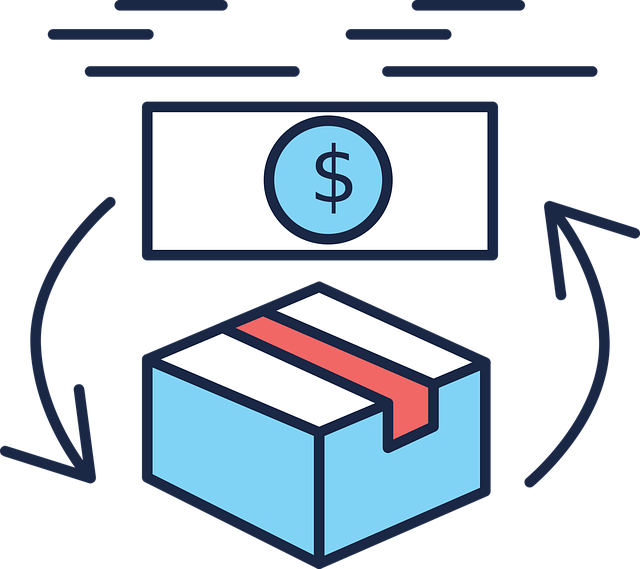Where to Trade Crypto: A Comprehensive Guide
Author: Jameson Richman Expert
Published On: 2024-09-07
Prepared by Jameson Richman and our team of experts with over a decade of experience in cryptocurrency and digital asset analysis. Learn more about us.
Cryptocurrency trading has gained immense popularity in recent years, largely due to the increasing integration of digital currencies into mainstream finance. As novices and veterans alike strive to capitalize on market opportunities, the question arises: where is the best place to trade cryptocurrencies? In this article, we will explore different platforms where crypto trading thrives, evaluate their pros and cons, and provide insights to help you choose the right trading venue.

Understanding Cryptocurrency Exchanges
At the heart of crypto trading are cryptocurrency exchanges, which serve as platforms for buying, selling, and exchanging cryptocurrencies. These exchanges can be broadly categorized into two types: centralized exchanges (CEX) and decentralized exchanges (DEX).
Centralized Exchanges (CEX)
Centralized exchanges are managed by organizations that act as intermediaries between buyers and sellers. They offer robust security features, high liquidity, and a range of trading options. Some popular CEX include:
- Coinbase
- Binance
- Kraken
- Bitfinex
- Huobi
Pros of Centralized Exchanges
Centralized exchanges provide a user-friendly interface that simplifies the trading process for beginners. Additionally, they often feature advanced trading tools such as margin trading and futures. Security measures, including two-factor authentication (2FA) and cold storage for funds, are substantial advantages.
Cons of Centralized Exchanges
However, CEX are not without their drawbacks. Most notably, users are required to trust the exchange with their funds, which poses a risk if the exchange is hacked or mismanaged. Furthermore, regulatory constraints may lead to restrictions in accessing certain services based on geographic location.
Decentralized Exchanges (DEX)
Decentralized exchanges operate without a central authority, allowing users to trade directly with one another. This peer-to-peer model has become increasingly popular as it enhances privacy and security and aligns with the foundational philosophy of cryptocurrencies. Notable DEX include:
- Curve Finance
- 1inch
- Pros of Decentralized Exchanges
One of the primary benefits of DEX is that users retain control over their funds throughout the trading process. Additionally, DEXs offer enhanced privacy and less susceptibility to regulatory intervention. Since they do not hold user funds, the risk of hacks is significantly lower.
Cons of Decentralized Exchanges
On the flip side, DEX often have lower liquidity compared to their centralized counterparts, which can result in higher slippage during trades. Moreover, the user experience can be less intuitive, making it more challenging for new users to navigate trading on these platforms.
Key Factors to Consider When Choosing a Trading Platform
Selecting the most suitable exchange for your cryptocurrency trading activities hinges on various factors, including security, fees, user experience, and available assets. Below, we elaborate on each criterion to consider:
Security
Security should be your top priority when choosing a trading platform. **In my opinion, the history of hacks in the cryptocurrency space cannot be overlooked; hence, platforms with sound security protocols such as cold storage, 2FA, and withdrawal whitelists are necessary.** Always research an exchange's reputation and track record before committing your funds.
Fees
Trading fees can vary significantly across platforms, affecting your overall profit margin. **It's prudent to calculate potential trading costs before committing to an exchange, as high fees may constrict your trading strategy.** Look for exchanges that offer competitive fee structures, including trading, withdrawal, and deposit fees.
User Experience
An intuitive interface can significantly impact your trading experience. **As someone who appreciates user-friendly platforms, I recommend choosing exchanges that offer clear navigation and accessible support.** Interface design, mobile app availability, and educational resources should all influence your decision.
Available Assets
It's crucial to verify that an exchange supports the cryptocurrencies you wish to trade. Some platforms focus solely on major cryptocurrencies while others allow for trading a broader array of altcoins. **In my view, diversification is key, and trading platforms that offer an extensive selection facilitate this.**
Top Cryptocurrency Exchanges to Consider
With all the factors we discussed above, here’s a breakdown of some of the best cryptocurrency exchanges:
1. Coinbase
Coinbase is often considered the go-to platform for beginners. Its user-friendly interface, solid customer support, and regulatory compliance make it a reliable option.
- Pros: Easy to use, robust security, ideal for beginners.
- Cons: High fees compared to other exchanges.
2. Binance
Binance is known for its wide range of trading pairs and advanced trading options. It is suitable for both newcomers and experienced traders.
- Pros: Low fees, vast selection of cryptocurrencies.
- Cons: Restrictions in certain countries, complicated for beginners.
3. Kraken
Kraken boasts a reputation for security and reliability. It provides a comprehensive set of tools for advanced traders.
- Pros: High liquidity, strong security features.
- Cons: More complex interface for novices.
4. Bitfinex
Bitfinex is favored by professional traders due to its advanced features, including margin trading and lending options.
- Pros: Low trading fees for large volumes, advanced tools.
- Cons: Complicated for beginners, past security breaches.
5. Uniswap (DEX)
If you're looking for a decentralized platform, Uniswap is a leading DEX that allows users to trade directly from their wallets without the need for intermediary custody.
- Pros: Strong privacy, no registration required.
- Cons: Higher slippage, lower liquidity for some tokens.

Emerging Trends in Cryptocurrency Trading Platforms
The landscape of cryptocurrency trading is constantly evolving, influenced by advancements in technology and changes in regulatory frameworks. Here are some emerging trends to keep an eye on:
1. Integration of DeFi
Decentralized Finance (DeFi) is reshaping how trading occurs by providing users with the ability to lend, borrow, and earn interest directly through smart contracts. **This movement toward decentralization reflects a broader desire for autonomy in financial transactions, and I believe it’s a game-changer for the entire industry.**
2. Blockchain Technology Improvements
Ongoing advancements in blockchain technology, such as Ethereum 2.0, promise to address scalability and transaction speed issues that have plagued many platforms. **As these improvements roll out, they will enhance the trading experience and could introduce new opportunities for investors.**
3. Institutional Adoption
The involvement of institutional players such as hedge funds and publicly traded companies signifies a new era for cryptocurrency. **In my view, institutional adoption enhances market legitimacy and may result in greater stability moving forward.**
Conclusion: Making the Right Choice
In summary, the world of cryptocurrency trading offers a multitude of platforms, each with its own set of advantages and disadvantages. By understanding the differences between centralized and decentralized exchanges and considering factors such as security, fees, user experience, and available assets, you can make an informed decision that aligns with your trading goals. **Ultimately, the best trading platform for you is one that suits your unique needs as a trader; conduct thorough research, stay updated on market trends, and don’t hesitate to diversify your approach.**
As you embark on your cryptocurrency trading journey, remember that knowledge is your greatest asset. Equip yourself with the tools and information necessary for success, and navigate this ever-evolving landscape with confidence.